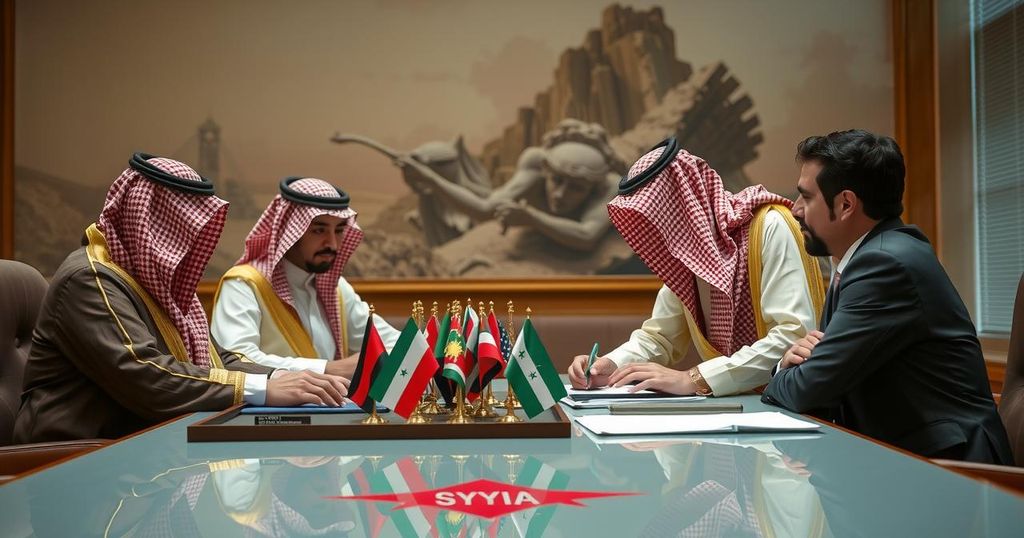Diplomats from the Arab world and Europe are meeting in Riyadh to discuss Syria’s future and potential sanctions relief. The discussions will include sessions with Arab officials and broader international participation, occurring after the leadership change following the fall of Bashar al-Assad. The European Union may consider lifting sanctions based on the new government’s commitment to inclusive governance.
On Sunday, top diplomats from Arab nations and Europe convened in Riyadh to engage in significant discussions regarding the ongoing situation in Syria. These talks were structured into two distinct sessions, with the first session focused on Arab officials and the second session expanding to include representatives from Turkey, France, the European Union, and the United Nations, among others. This dialogue occurs in the wake of changes in Syria’s leadership following the overthrow of Bashar al-Assad, as newly appointed leader Ahmed al-Sharaa seeks to alleviate sanctions imposed by the West.
The backdrop of these discussions is the extensive humanitarian crisis that has emerged from over 13 years of civil conflict in Syria, leading to the deaths of more than half a million individuals and the displacement of millions, especially towards European nations. Previously, sanctions imposed by Western powers, which included the United States and members of the European Union, targeted Assad’s government due to its violent repression of protests that began in 2011.
In light of recent developments, European Union’s chief diplomat Kaja Kallas indicated that the EU might reconsider its sanctions policy, hinting at potential relief if Syria’s new administration shows commitment towards forming an inclusive government that emphasizes the protection of minority communities. This marks a notable shift as the international community seeks constructive engagement in addressing the persistent instability in Syria.
The ongoing conflict in Syria began in 2011 when anti-government protests were met with severe crackdowns by the regime of Bashar al-Assad, igniting a brutal civil war that has persisted for over a decade. This conflict has resulted in devastating humanitarian consequences, including a colossal death toll and mass displacements. Diplomatic efforts are now underway to explore post-conflict recovery and stabilization, especially following a change in leadership with the recent appointment of Ahmed al-Sharaa as the new leader after Assad’s fall. Foreign diplomats are engaging in talks aimed at the potential lifting of sanctions previously established against the Assad regime, targeting an inclusive future governance framework.
In summary, the ongoing diplomatic discussions in Saudi Arabia represent a crucial step towards evaluating the future of Syria in the wake of significant political changes. As international powers contemplate the easing of sanctions, the necessity for an inclusive government that respects minority rights emerges as a central theme. The outcome of these talks could significantly influence Syria’s path toward recovery and stability after years of devastating conflict.
Original Source: www.scmp.com






